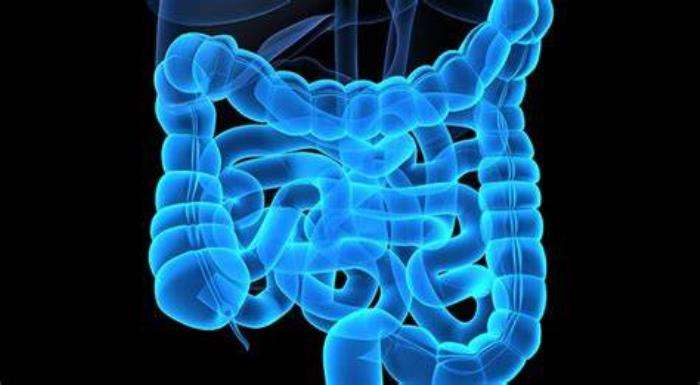Intestine transplant surgery involves replacing a damaged or non-functional small intestine with a healthy donor organ. It is primarily performed for patients with irreversible intestinal failure who can no longer be sustained on Total Parenteral Nutrition (TPN) due to complications or severe quality-of-life limitations.
Medical disclaimer: This content is for general awareness and does not replace a doctor’s consultation. For diagnosis or treatment decisions, consult a qualified specialist.
General Risks Associated with Intestine Transplantation
Intestine transplantation carries risks such as surgical complications, infections, organ rejection, and adverse reactions to anesthesia. Additionally, long-term use of immunosuppressive medications increases the risk of infections and other systemic complications.
Complications During and Immediately After Surgery
Complications during or shortly after intestine transplant surgery can include bleeding, blood clots, anastomotic leaks (improper joining of intestinal sections), and infections at the surgical site. Close monitoring and prompt intervention are essential to manage these risks effectively.

Risk of Organ Rejection in Intestine Transplant Patients
Organ rejection is a significant risk in intestine transplant patients due to the immune system recognizing the transplanted intestine as foreign. Rejection can occur acutely within days or weeks after surgery or chronically over a more extended period, potentially leading to graft failure.
Signs and Symptoms of Acute Rejection
Acute rejection often presents with symptoms such as abdominal pain, diarrhea, fever, and bloating. Patients may also experience vomiting, dehydration, or changes in their stoma output if applicable. Prompt diagnosis and treatment are critical to preserve the graft.
Chronic Rejection: A Long-Term Complication
Chronic rejection is a gradual process where the immune system damages the transplanted intestine over time. Symptoms may include malabsorption, intestinal inflammation, and recurring infections. Chronic rejection can significantly impact long-term graft survival and patient outcomes.
The Role of Immunosuppressive Therapy in Preventing Rejection
Immunosuppressive therapy is essential in preventing rejection after an intestine transplant. These medications suppress the immune response to minimize the risk of the body attacking the transplanted organ. Regular monitoring and adjustment of immunosuppressive drugs are crucial to balance preventing rejection with minimizing side effects.
Side Effects of Immunosuppressive Medications
Immunosuppressive medications, crucial for preventing organ rejection, can lead to side effects such as increased risk of infections, high blood pressure, kidney dysfunction, diabetes, and weakened bones. Patients may also experience gastrointestinal discomfort, weight gain, and mood changes. Long-term use raises concerns about malignancies due to suppressed immune surveillance.
Risk of Infections After Intestine Transplant Surgery
Post-transplant patients face a heightened risk of infections due to immunosuppression. Common infections include bacterial, viral, and fungal infections, such as cytomegalovirus (CMV) and Epstein-Barr virus (EBV). Preventive strategies, including prophylactic antibiotics and regular monitoring, are essential to minimize this risk.
Nutritional Challenges Following Intestine Transplantation
After an intestine transplant, patients may encounter difficulties with nutrient absorption, weight management, or food intolerances. A tailored diet plan and monitoring by a nutritionist are vital to address these challenges and promote optimal recovery.
Graft-Versus-Host Disease in Intestine Transplant Patients
Graft-versus-host disease (GVHD) occurs when donor immune cells attack the recipient’s tissues. Although less common in intestine transplants than in bone marrow transplants, GVHD can affect the skin, liver, or gastrointestinal tract. Immunosuppressive therapy and close monitoring are key to managing this condition.
Surgical Complications: Bleeding, Blood Clots, and Anastomotic Leaks
Surgical complications such as bleeding, blood clots, and anastomotic leaks (at the site where the intestine is joined) can occur during or after the procedure. Prompt surgical intervention and monitoring are crucial to addressing these potentially life-threatening issues.
Impact of Post-Surgical Adhesions on Intestinal Function
Adhesions, bands of scar tissue that form after surgery, can lead to intestinal obstruction or impaired function. While mild cases may resolve with non-invasive management, severe adhesions may require additional surgical intervention.

Risk of Recurrence of the Original Condition in the Transplanted Intestine
Certain conditions, such as Crohn’s disease, may recur in the transplanted intestine. Regular follow-ups and targeted therapies are essential to prevent or manage recurrence and maintain transplant function.
Psychological Challenges and Emotional Impact of Transplant Surgery
Patients may experience stress, anxiety, or depression related to the surgery and its aftermath. Counseling and support groups can provide emotional assistance and help patients adapt to their new lifestyle.
Long-Term Risks: Cancer Development Linked to Immunosuppression
Prolonged immunosuppressive therapy increases the risk of developing certain cancers, such as lymphoma and skin cancer. Regular screenings and preventive measures are crucial for early detection and treatment.
Managing Post-Transplant Liver and Kidney Dysfunction
Liver and kidney dysfunction can arise as side effects of immunosuppressive medications or from underlying conditions. Early diagnosis, medication adjustments, and supportive therapies are critical to managing these complications effectively.
The Role of Regular Monitoring in Detecting and Managing Complications
Routine medical check-ups and diagnostic tests, such as blood work, imaging, and biopsies, are essential to detect early signs of rejection, infection, or other complications. Consistent monitoring improves outcomes and ensures timely interventions.
Advances in Medical Care to Minimize Transplant Risks
Innovations such as targeted immunosuppressive therapies, improved surgical techniques, and advancements in organ preservation have significantly reduced the risks associated with intestine transplants, leading to better patient outcomes.
Managing Infections After Intestine Transplant Surgery
Learn how to manage infections after intestine transplant surgery. This blog discusses the importance of monitoring and preventing infections, which are common post-transplant complications, and strategies for effective management to ensure a successful recovery.
Coping Strategies for Patients and Families Facing Transplant Complications
Education about potential complications, access to mental health support, and involvement in transplant patient communities can help patients and their families manage the challenges associated with intestine transplantation.
Best Intestine Transplant in India
The Best Intestine Transplant in India offers a vital treatment option for patients with severe intestinal failure, combining advanced surgical techniques and comprehensive post-transplant care.
Best Intestine Transplant Hospitals in India
The Best Intestine Transplant Hospitals in India are equipped with cutting-edge technology and multidisciplinary teams, ensuring seamless patient care and successful transplant outcomes.
Intestine Transplant Cost in India
The Intestine Transplant Cost in India is competitively priced, providing access to world-class treatment with transparent pricing and comprehensive care packages.
Best Intestine Transplant Surgeons in India
The Best Intestine Transplant Surgeons in India are highly skilled and experienced, ensuring precise surgical interventions and personalized patient care for optimal recovery and long-term success.
FAQ Section
1. What are the most common risks of intestine transplant surgery?
The main risks include organ rejection, infections, surgical complications like bleeding or leaks, and long-term issues such as graft failure or malignancies due to immunosuppressive medications.
2. How can organ rejection be prevented after an intestine transplant?
Organ rejection is prevented through the use of immunosuppressive medications, regular medical follow-ups, and monitoring for early signs of rejection.
3. What are the signs of acute and chronic rejection?
Acute rejection symptoms may include abdominal pain, diarrhea, fever, or weight loss. Chronic rejection often presents as malabsorption, fatigue, or gradual weight loss.
4. What infections are common after intestine transplant surgery?
Common infections include bacterial infections, fungal infections (e.g., Candida), and viral infections such as cytomegalovirus (CMV) and Epstein-Barr virus (EBV).
5. How are nutritional issues managed post-intestine transplant?
A specialized diet plan, nutritional supplements, and regular monitoring by a dietitian or nutritionist help manage absorption challenges and maintain a balanced diet post-transplant.
Intestine transplantation is a surgical procedure that replaces a diseased or damaged small intestine with a healthy one from a donor. This procedure is typically considered for patients with irreversible intestinal failure, where the intestines cannot adequately digest food and absorb essential nutrients, fluids, and electrolytes. Conditions that may necessitate an intestine transplant include short bowel syndrome, Crohn's disease, severe motility disorders, and complications from total parenteral nutrition (TPN). Intestine transplantation can significantly improve the patient's quality of life and overall health by restoring normal digestive function. Understanding Intestine Transplantation for Complex Digestive Disorders
Graft-versus-host disease (GVHD) is a significant complication that can occur after intestine transplantation. It happens when the donor's immune cells recognize the recipient's tissues as foreign and attack them. Managing GVHD involves a combination of immunosuppressive medications to control the immune response, biopsies to diagnose and monitor the condition, and supportive care to manage symptoms such as diarrhea, abdominal pain, and skin rashes. Early detection and intervention are crucial for improving outcomes and preventing severe complications. Addressing Graft-Versus-Host Disease in Intestine Transplants
Multidisciplinary teams (MDTs) play a crucial role in the success of intestine transplants. These teams consist of various healthcare professionals, including transplant surgeons, gastroenterologists, nutritionists, pharmacists, nurses, and social workers, who collaborate to provide comprehensive care. Each team member brings their unique expertise to manage different aspects of the transplant process, from pre-transplant evaluation to post-transplant care. The Role of Multidisciplinary Teams in Intestine Transplant Care